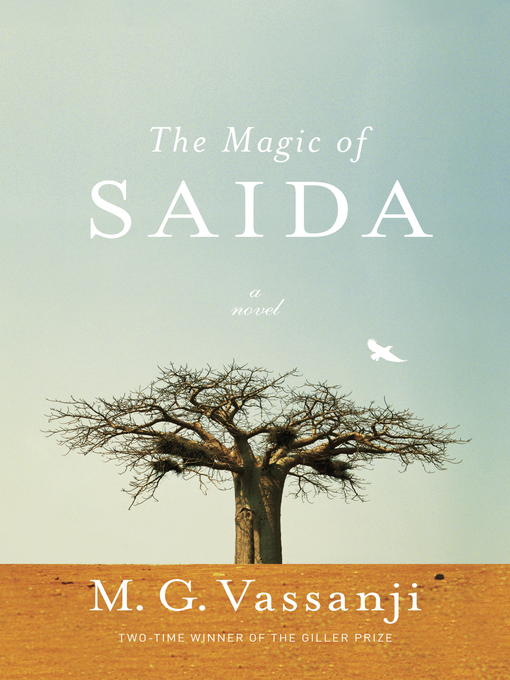
The Magic of Saida
Vintage Contemporaries
کتاب های مرتبط
- اطلاعات
- نقد و بررسی
- دیدگاه کاربران
نقد و بررسی

February 1, 2013
Vassanji (The Assassin's Song, 2007, etc.) employs dense yet splintered prose to mirror the dense yet splintered identity of his multicultural/multiethnic protagonist, a successful Canadian doctor who was born in Tanzania to an African mother and Indian father. When the novel opens, Kamal lies delusional and near death in a hospital in Tanzania. As he recovers, his new Tanzanian acquaintance, a local publisher, unravels the mystery of what made Kamal so sick. Kamal has returned to Tanzania after 35 years abroad, haunted by his memory of the girl he loved as a child growing up in the village of Kilwa. The girl's name was Saida, and she was the granddaughter of a local poet of renown, Mzee Omari Tamim, who highly revered Kamal's Indian grandfather. He and Saida shared the innocent love of childhood, but then, at the age of 11, his mother abruptly sent him away to be raised by Indian relatives in the city; fortunately they turned out to be a loving family, but Kamal has never recovered from his sense of abandonment. The story of Kamal's childhood in 1950s Africa as a mixed-race child cuts away to his return to present-day Kilwa, where he stays in a ramshackle hotel owned by an expat British owner--the retro echoes of Graham Greene and W. Somerset Maugham play with readers' expectations in this decidedly contemporary African novel. Kamal has returned to find Saida, the guilty love of his life. Her elderly aunt is reluctant to tell him what she knows, but he persists. Excerpts from Mzee Omari's poetic history of Tanzania are laced throughout, but the poet's own story is more complex than it at first appears. In fact, nothing here is as straightforward as it seems: Who was/is Saida, why did Kamal's mother send him away, and what lies at the source of Mzee Omari's poetry? And then there is Kamal's own ambivalence toward his history. An ambitious, passionate work about racial identity, deracination and the unsolvable mysteries of the human heart.
COPYRIGHT(2013) Kirkus Reviews, ALL RIGHTS RESERVED.

October 15, 2012
Born in Tanzania to an African mother and an Indian father, married to an Indian woman, and long a resident of Canada, Kamal Punja would appear to be a true cosmopolitan. But suddenly he determines to return home both to resolve his conflicted racial identity and to find a woman named Saida, fulfilling a promise that he would return. Two-time Giller Prize winner Vassanji examines core issues of self and belonging with a magic of his own.
Copyright 2012 Library Journal, LLC Used with permission.

Starred review from March 1, 2013
Vassanji's (The Assassin's Song, 2007) remarkable new novel is a magic trick that reveals how it's performed while in process. It has an old-fashioned, Conradian narrative construct: while recovering from malaria or madness, Kamal Punja, the befuddled protagonist, tells his story to Martin Kigoma, a publisher who may well be an unreliable narrator. And the story is complex. Kamal is a golo, or half-caste, the son of an Indian father and an African mother who was raised in Kilwa, a coastal backwater in colonial Tanzania. He escaped and found success as a doctor in Edmonton, Canada. What may or may not be an ordinary midlife crisis has brought him back to his origins, and led him to track down his first love, an African girl named Saida. As Kamal relates the colonial historythe successive waves of occupation, degradation, resistance, and modernization of his beloved Kilwa and its surroundingsVassanji's tactile, occasionally sentimental prose amounts to the best sort of historical fiction because the history is integral to the story. Once the trick is completed, the magic must be shown for what it is: tragedy. Vassanji has won Canada's Giller Prize twice. This book also seems bound for glory.(Reprinted with permission of Booklist, copyright 2013, American Library Association.)

























دیدگاه کاربران